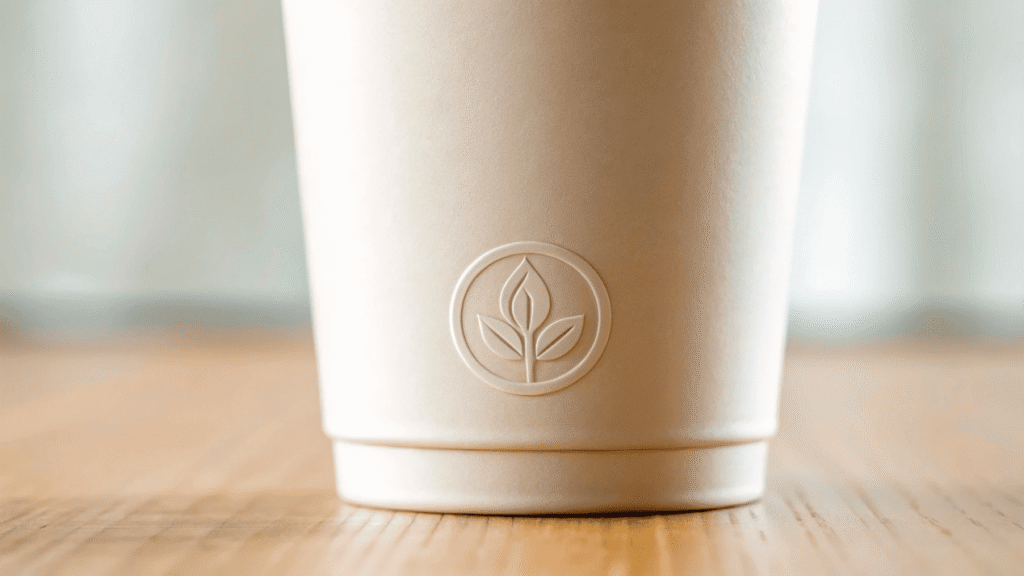Choosing eco-friendly cups is confusing. The wrong choice wastes money, misleads your customers, and can even hurt your brand's reputation if your sustainability claims don't hold up.
Compostable (PLA-lined) cups need special facilities to break down. Modern recyclable cups use coatings that work with existing paper recycling. The best choice depends entirely on your local waste infrastructure.
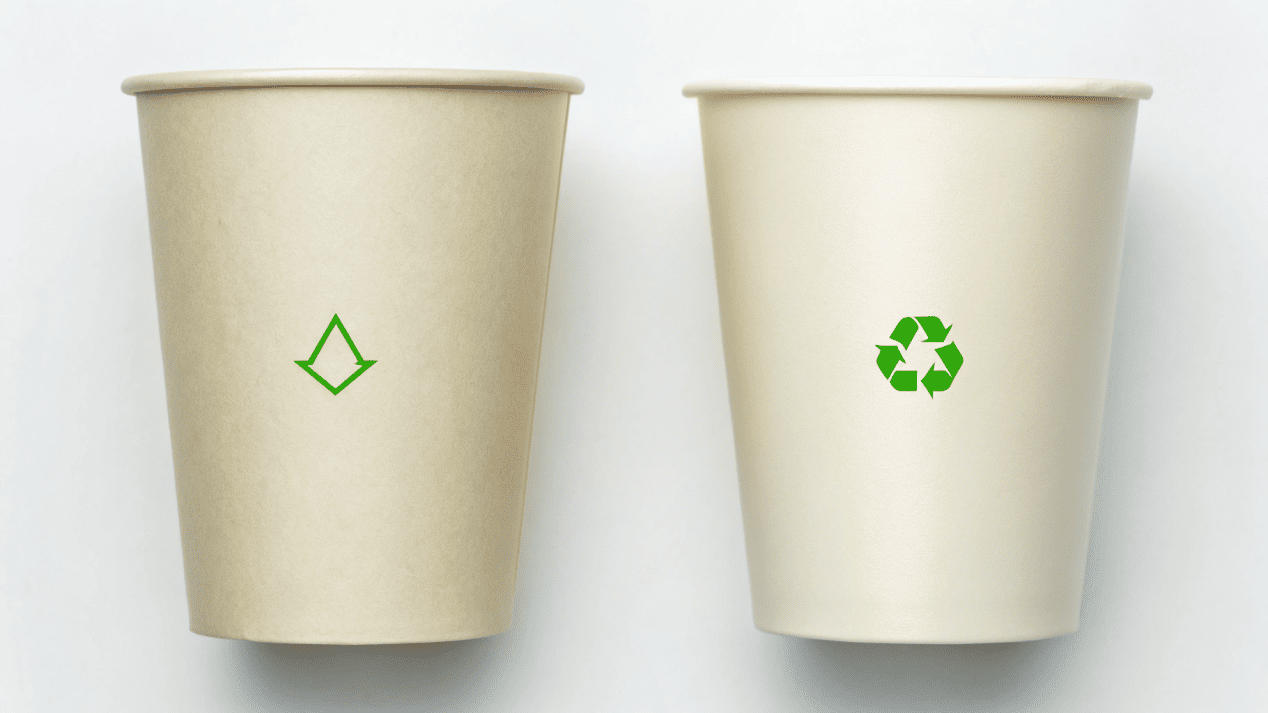
I once had a very passionate client who switched his entire cafe to compostable cups. He was proud, and his customers loved it. The problem? His city had no commercial composting facility. Every single one of those "eco-friendly" cups ended up in a landfill, where they couldn't properly break down. He had the best intentions but lacked one key piece of information. Choosing the right sustainable cup isn't just about the cup itself; it's about understanding the system it will end up in.
What Does 'Compostable' Really Mean?
You've chosen compostable cups to be environmentally friendly. But they are being thrown in the regular trash, ending up in landfills where they fail to break down as designed.
Compostable cups use a plant-based PLA lining. They only decompose in high-heat industrial composting facilities, not in a landfill or a backyard compost pile. Look for certifications like BPI.
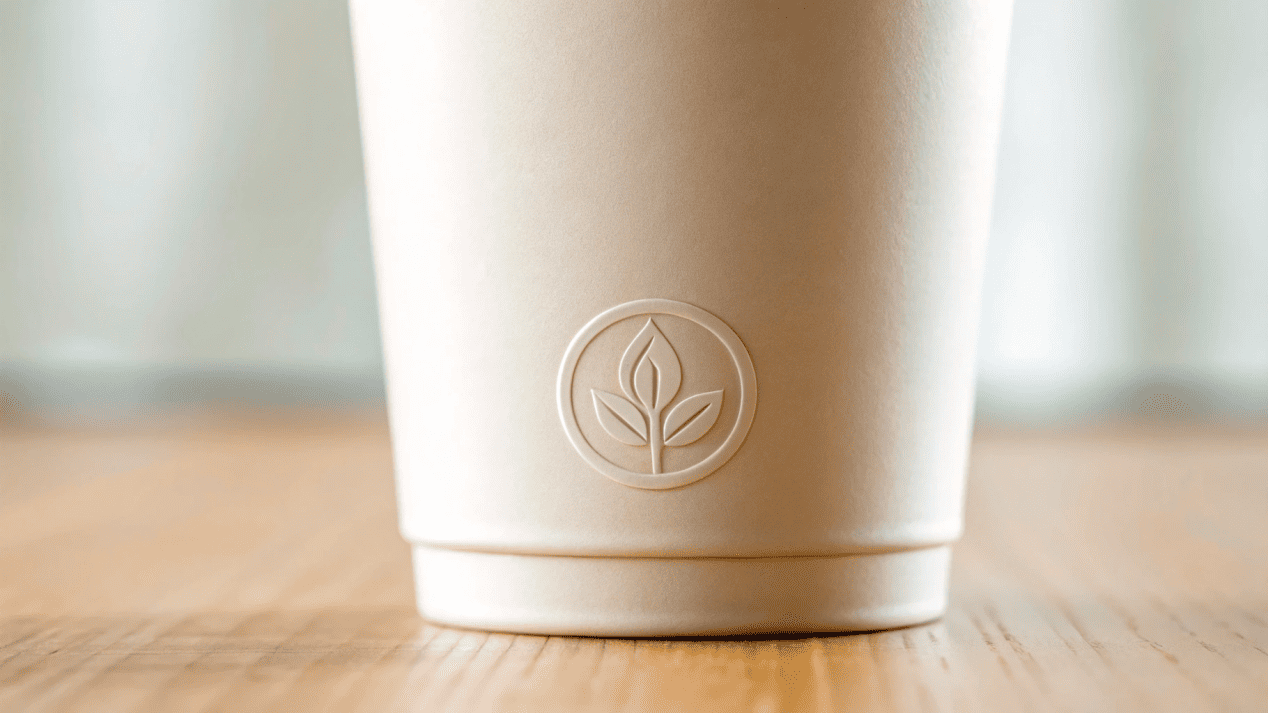
The science behind a compostable cup is fascinating. The secret is the waterproof lining inside. For decades, this lining was made from PE (polyethylene), a petroleum-based plastic. In a compostable cup, we replace that with PLA (Polylactic Acid). PLA is a bioplastic made from renewable plant resources like corn starch. It performs just like PE—it holds your hot coffee without leaking. The critical difference is its end-of-life design.
The Catch: Commercial vs. Home Composting
This is the most important point I stress to my clients. Most PLA-lined cups are certified for commercial composting only. They need the specific conditions of an industrial facility—sustained high temperatures (over 130°F / 55°C), humidity, and a specific mix of microorganisms—to break down into healthy compost. They will not decompose correctly in a landfill or a cool backyard compost bin. That's why certifications from organizations like the Biodegradable Products Institute (BPI) are so important. They verify that a product meets the scientific standard for commercial compostability.
| Feature | PE (Polyethylene) Lining | PLA (Polylactic Acid) Lining |
|---|---|---|
| Source | Petroleum (Fossil Fuels) | Plants (Corn, Sugarcane) |
| End of Life | Landfill or specialized recycling | Commercial Composting |
| Key Benefit | Low cost, very durable | Renewable resource, biodegradable |
Are 'Recyclable' Paper Cups Actually Recyclable?
You have heard for years that paper cups can't be recycled. This makes you feel guilty and wonder if there is any good paper-based option for your business at all.
Yes, modern recyclable cups with advanced water-based coatings are designed for standard paper recycling. The special coating easily separates from the paper fiber during the pulping process.
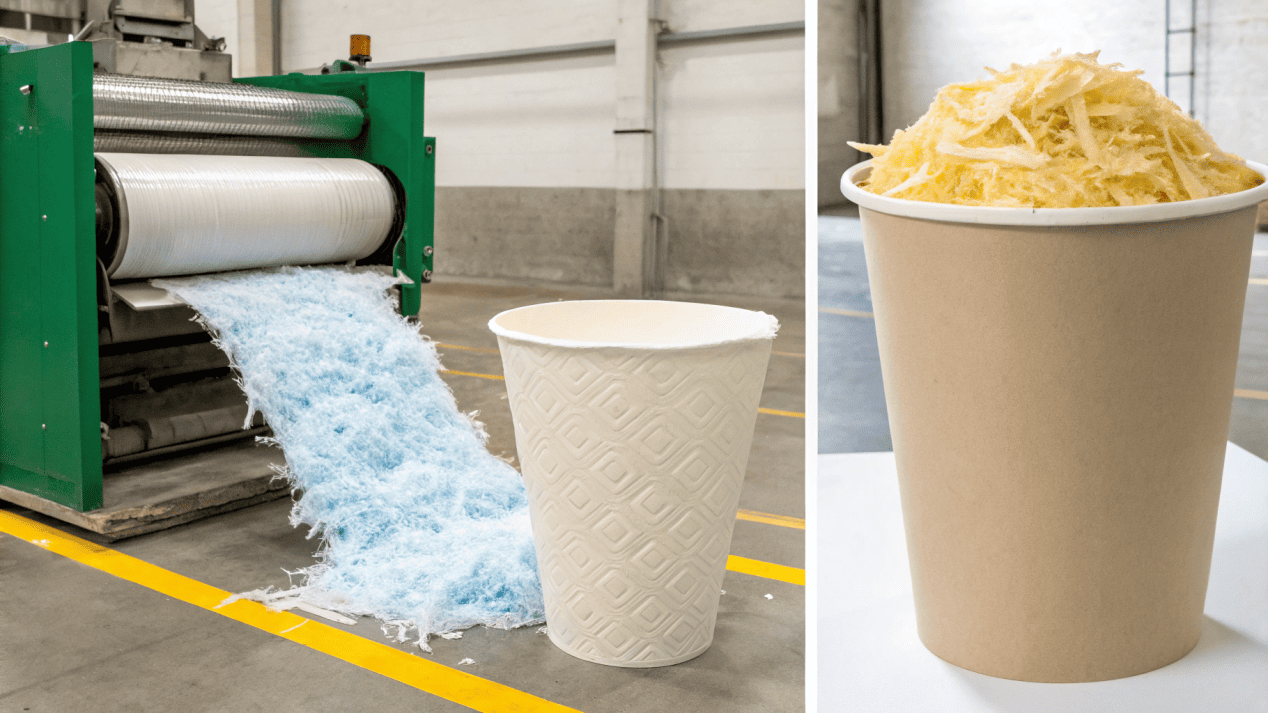
The old reputation of paper cups being unrecyclable was, for a long time, true. The problem was the PE plastic lining. It was so strongly bonded to the paper fiber that standard recycling mills (called "pulpers") couldn't separate them. Trying to recycle these cups would just contaminate a whole batch of paper pulp. However, engineering has solved this problem.
The Engineering Solution: Water-Based Barrier Coatings
The newest generation of recyclable cups uses a different technology. Instead of a laminated sheet of plastic, we apply an advanced water-based barrier coating. Think of it as painting on a waterproof layer that is designed to come off easily. When these cups arrive at a standard paper recycling facility and are mixed with water in a pulper, the coating breaks away from the paper fibers. The valuable paper fibers can then be captured and turned into new paper products, like cardboard or paper towels. The primary advantage here is huge: these cups are compatible with the existing recycling infrastructure in many cities. This makes it a practical, effective solution where commercial composting isn't available.
Is Investing in Green Cups Worth the Extra Cost?
You see that sustainable cups cost more per unit. This higher price directly cuts into your tight profit margins, and you question if customers will even notice or care.
Yes. The true return on investment is in your brand. It builds powerful customer loyalty, attracts environmentally conscious patrons, and clearly demonstrates your company's values in a tangible way.
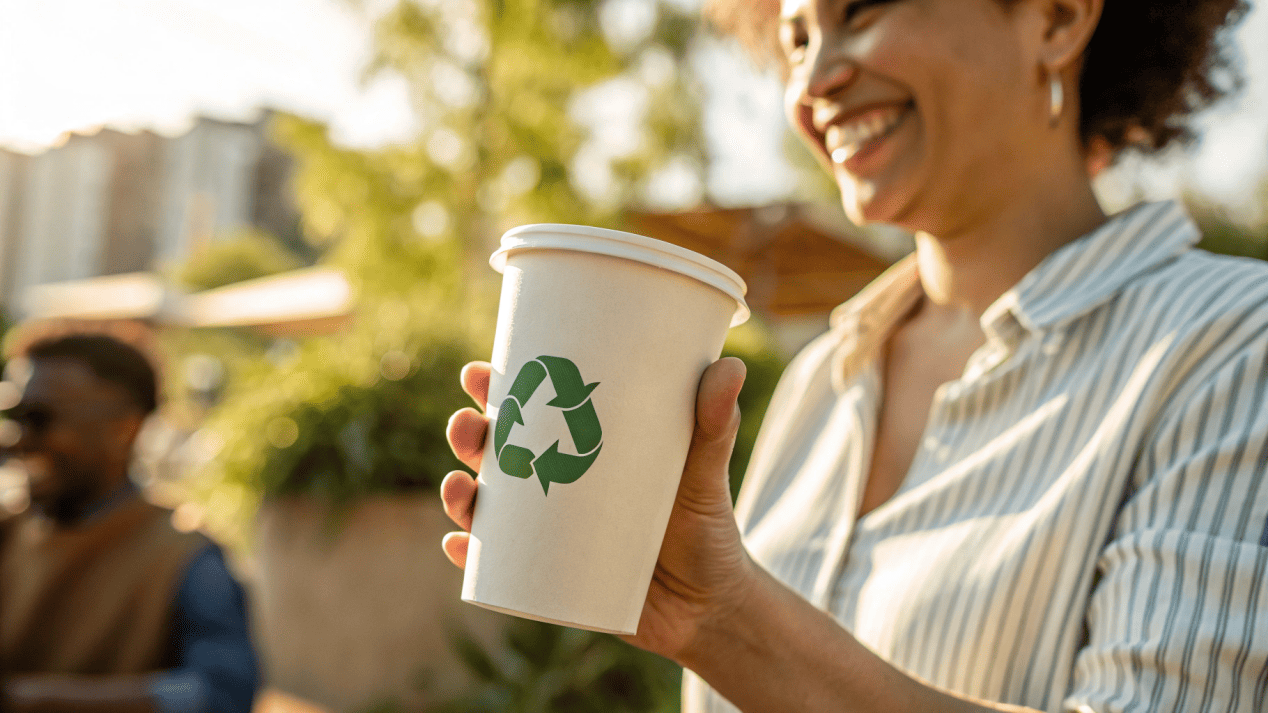
As a manufacturer, I understand cost is a major factor. But a sustainable cup should be seen as an investment in marketing and brand identity, not just an operational expense. The return on this investment is measured in customer trust, not just pennies saved per cup.
More Than a Cup: A Marketing Tool
Today's consumers are smart. They actively choose to support businesses that share their values. When you hand them a cup with a clear message like "I'm Commercially Compostable" or "Please Recycle Me," you are doing more than serving a drink. You are making a statement that your brand cares about its environmental impact. This resonates deeply. I had a coffee shop client who switched to certified recyclable cups and put a small sign up explaining the choice. They told me the number of positive customer comments and social media mentions they received was astounding. That cup becomes a daily reminder of why they choose your business over a competitor. This kind of loyalty is something that simple discounts can never buy.
How Can a Supplier Help You Make the Right Choice?
You are an expert in your business, not in waste management logistics or material science. You feel overwhelmed trying to figure out which cup is truly the best option for your specific location.
A good supplier is a strategic partner. They analyze your local waste systems, provide fully certified materials, and help you design clear on-cup messaging to guide your customers to dispose of it properly.

You should not have to become a sustainability expert to make a responsible choice. That's our job. A great supplier doesn't just sell you a product; they provide a complete solution. When a new client comes to me, the first question I ask isn't "What do you want to buy?" It's "What city do you operate in?"
A Partnership for Success
The right partner is essential for navigating this complex landscape. Here is what we provide:
- Infrastructure Analysis: We will help you understand the local waste management capabilities in your area. Is there a commercial composting facility nearby that accepts food service packaging? Or is the paper recycling stream robust and accessible? This information determines the best choice.
- A Certified Supply Chain: Your claims must be backed by proof. We source paperboard from FSC (Forest Stewardship Council) certified forests and use materials like BPI-certified PLA. This transparency ensures your cup is genuinely sustainable from start to finish.
- Effective Design and Communication: We help you design your cup to not only look great but also to educate your customer. Simple messaging like "Recycle Me" or "Compost Me" on the cup itself dramatically increases the chance it will end up in the right bin.
Conclusion
The best sustainable cup fits your brand, customers, and local infrastructure. Whether compostable or recyclable, making an informed choice elevates your brand and helps the planet.
